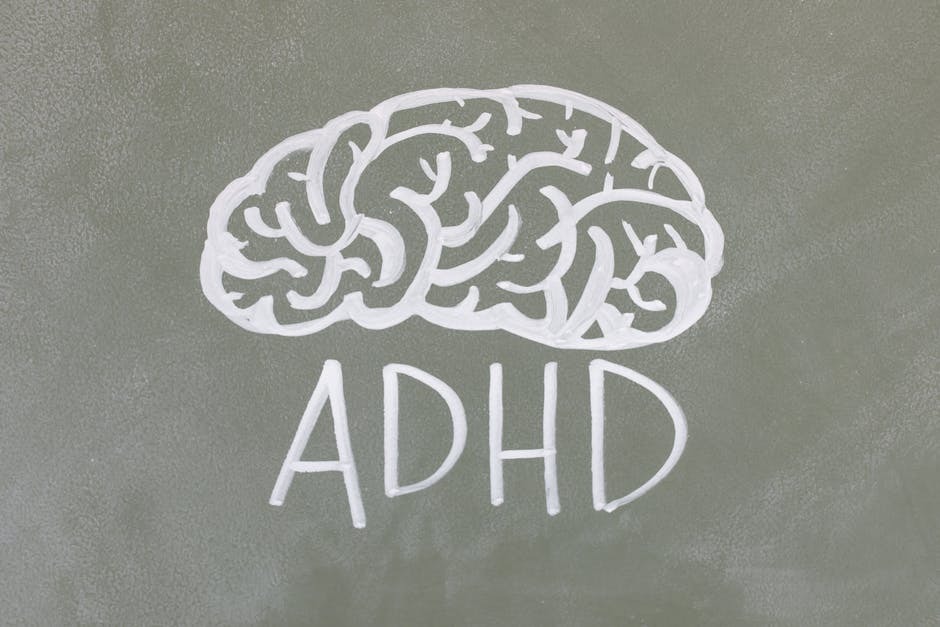Attention-deficit hyperactivity disorder (ADHD) is a brain disorder that affects a person’s ability to function across multiple life domains. Although there is no cure for this condition, ADHD symptoms can be managed with treatment. Learn more about the basics of ADHD and how clinical help may improve your well-being.
What Is ADHD?
Attention deficit-hyperactivity disorder is a neurological condition marked by “patterns of developmentally inappropriate levels of inattentiveness, hyperactivity, or impulsivity.” Individuals who have this condition struggle with executive function and emotional regulation.
There are three types of ADHD and their symptoms, including:
- Primarily hyperactive-impulsive: An individual with this form of ADHD is restless, overly talkative, and always on the go. They struggle with delaying gratification and tend to make big decisions quickly without weighing their options. They may have the ability to hyper-focus on activities of interest and lose track of time. Others may find them difficult to keep up with.
- Primarily inattentive: The individual has trouble completing tasks and following instructions that involve many steps. They are easily distracted and forgetful of both insignificant and important things. Sustaining focus for long periods of time can be daunting. Others may see them as careless or lazy.
- Combined: This kind of individual experiences a combination of both hyperactive-impulsive and inattentive symptoms.
It’s important to note that some individuals can be high functioning with ADHD. Throughout school, they may have excelled despite their apparent lack of classic symptoms. If this was your experience, seeing a clinician can help you find some answers.
Clearing Up the Confusion Between ADHD and ADD
This condition has changed in name over the years. ADHD used to be called “minimal brain dysfunction” in the 1930s and was later divided into two separate disorders: ADHD and attention deficit disorder (ADD).
Today, the Diagnostic and Statistical Manual of Mental Disorders (DMS-5) considers ADHD and ADD as one condition, and variations in symptomatology are classified as types of ADHD. For instance, if you were diagnosed as a child with ADD, your condition is now called “primarily inattentive ADHD.”
Changes to categorization and naming occur with other mental and physical conditions. Updates are made to better reflect the current understanding of the condition.
How Is ADHD Treated?
There is no cure for ADHD. However, treatments are available that may improve your ability to function at work and at home. Treatment options include medication, therapy, psychoeducation, or a combination of all three. Clinicians will work with you to come up with an individualized treatment plan.
Medications Reduce Symptoms in Many People
- Stimulants like Adderall are the most common type of medication prescribed to treat ADHD symptoms. Stimulants work to increase dopamine and norepinephrine in the brain, both of which are involved in thinking and attention.
- Non-stimulants are used when stimulants have been ineffective or have had negative side effects. Sometimes, a non-stimulant is prescribed in combination with a stimulant to enhance effectiveness. Although they take longer take effect, they still work to improve focus, attention, and impulsivity.
- Antidepressants are sometimes prescribed alone or with a stimulant. Antidepressants can be particularly helpful for those who are struggling with both ADHD and anxiety or depression.
Why Therapy Might Be Helpful
Children who have ADHD are often labeled as troublemakers. They may also be accused of being lazy, indifferent, or downright defiant. Your childhood may have been marked by these types of conflicts at school and at home if your disorder was undiagnosed.
Being scolded because of the manifestations of your disorder may have built up feelings of anger, shame, and resentment. Perhaps you don’t have the best image of yourself and struggle with low confidence. Poor interpersonal skills and unhealthy relationship dynamics may have formed with parents and peers, making it difficult to function in social settings as an adult.
Therapy and Psychoeducation Can Help You Grow
Receiving cognitive-behavioral therapy can aid in unpacking these issues and acquiring new skills, attitudes, and ways of interacting with others. Couples therapy can also be helpful if ADHD symptoms are creating conflicts between you and your partner.
Psychoeducation helps by informing you of the causes and symptoms of your condition, helping you set appropriate expectations for managing it as an adult. Through understanding, you may also come to accept your ADHD symptoms and tap into them like superpowers.
Why Should You Get Treated?
Every aspect of your life can be affected by ADHD.
This disorder can make it difficult, if not impossible, to accomplish the simplest of tasks. Symptoms may start to cause problems in relationships. Some individuals start abusing substances to cope with negative emotions and self-image, putting themselves at risk for addiction.
Treatment can help you develop strategies to manage your symptoms and improve your outlook on life.
Attention-deficit hyperactive disorder is a developmental disorder that primarily affects a person’s ability to stay organized and control impulses. It is now recognized that there are three variations of ADHD: hyperactive-impulsive, inattentive, and combined. West Coast Recovery Centers is primarily an outpatient treatment facility for addiction and co-occurring disorders in Oceanside, CA. Our program is certified by California. We recognize the challenges that ADHD can cause, as symptoms can be disruptive and cause conflicts in various settings. It is crucial to develop a management plan for ADHD early on so you can lead a productive and happy life. Since dealing with ADHD can be stressful, other complications may develop down the road, such as anxiety, depression, and substance abuse. We offer both traditional and holistic therapies in individual and group settings, as well as medication management. Call us today at (760) 492-6509 to learn how we can help.




